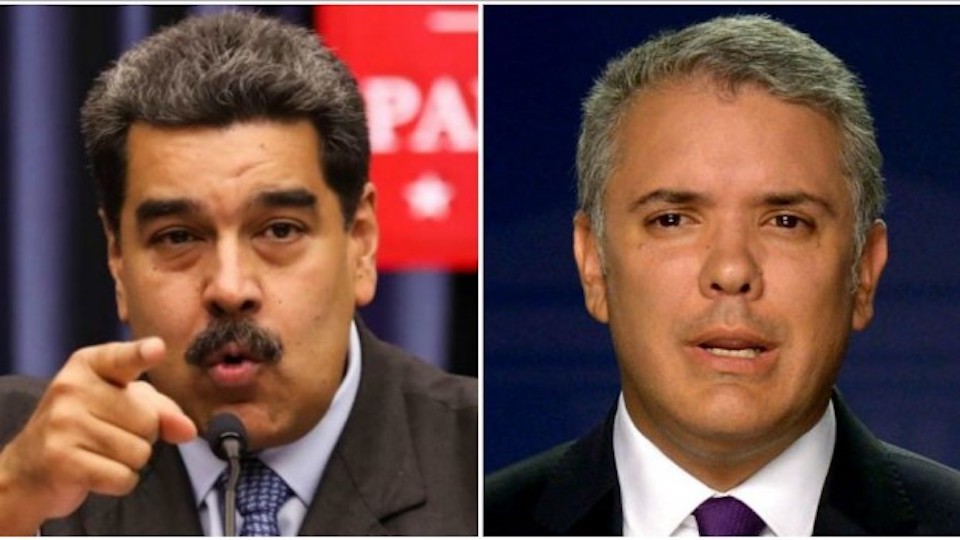Venezuela continues to be on orange alert over possible military aggression from Colombia. Following the announcement by Iván Márquez and Jesús Santrich from the demobilized Revolutionary Armed Forces of Colombia (FARC) on their return to armed struggle, Colombian president Iván Duque accused Venezuelan president Nicolás Maduro of knowingly providing refuge, protection and support to the guerrilla leaders.
Duque also asked the self-appointed “interim president” of Venezuela, Juan Guaidó, who has been trying to force Maduro out of office since January, for help in capturing the leaders. While the current location of the FARC leaders is unknown, it is suspected, given their last sightings, that they are somewhere near the Colombian border with Venezuela.
Nicolás Maduro announced the orange alert on September 3 and declared that from September 10 to 28, Venezuela would carry out military exercises on the border. He claimed that Duque was using the rearming of the FARC dissident faction as an excuse to go to war with Venezuela.
Venezuela has reason to be on edge. The Colombian state has never been a supporter of the Bolivarian Revolution, as its socialist, people-first policies are in stark contrast to the conservative neoliberal model in Colombia. Under the leadership of Iván Duque, Colombia’s anti-Venezuela stance has only sharpened. It was one of the first countries to support Juan Guaidó’s proclamation of himself as “interim president”, regarding Maduro as a “usurper” and was eager to host Guaidó in the country while he plotted his next moves.
Bogotá hosted the Lima Group meeting on February 25 that brought together the conservative governments in the region and was attended by Guaidó himself and US vice-president Mike Pence. The meeting was held in order to plan regional action to support Guaidó and his efforts to overthrow Maduro. It was held two days after the failed humanitarian aid charade in Cucutá on the Colombian border with Venezuela.
Furthermore, over the past year, Venezuelan intelligence has uncovered several assassination plots and small terrorist cells which have been organized on Colombian soil and with participation from Colombian mercenaries. On August 31, the minister of communication Jorge Rodríguez held a press conference to denounce the latest plot to attack Venezuela and alleged that it was planned and coordinated from Colombia. He said that on August 17, explosives were found outside of various points in Caracas, including the Palace of Justice, and that a Colombian-Venezuelan citizen had been arrested in connection with the attempted attack.
Rodriguéz also highlighted the complicity of Colombian authorities in the assassination attempt of Nicolás Maduro in August 2018. He pointed out that Colombian immigration officers had allowed individuals and artifacts, including drones, to pass through the border to carry out the failed attempt.
On September 5, Iván Duque said that a military intervention in Venezuela was off the table.





